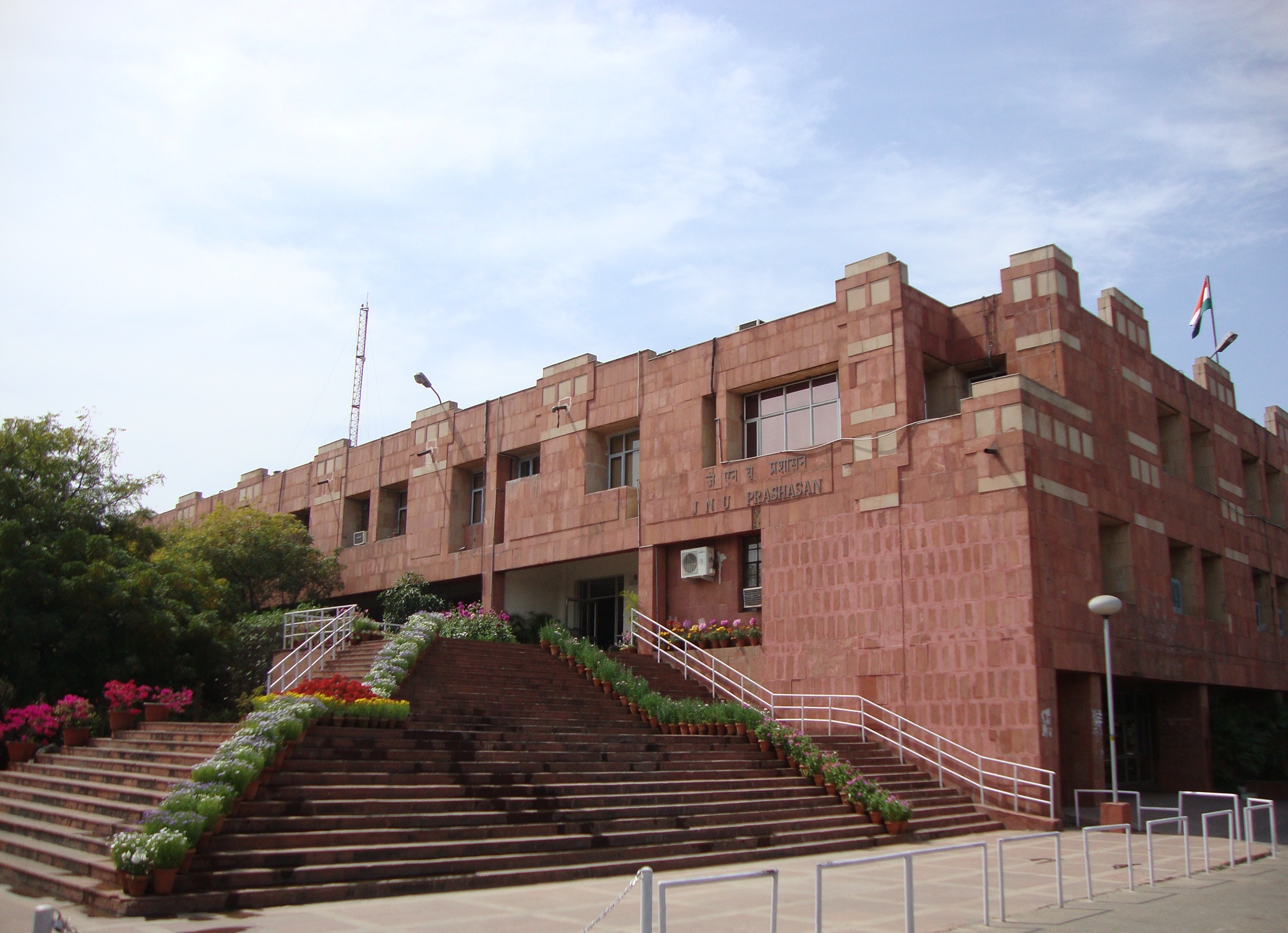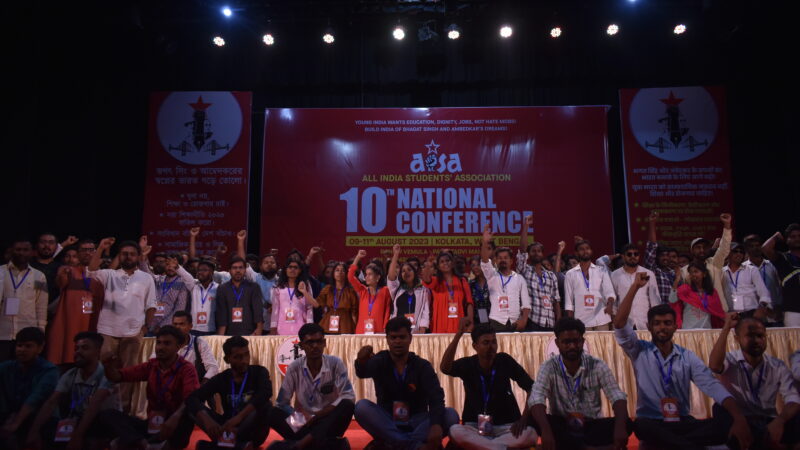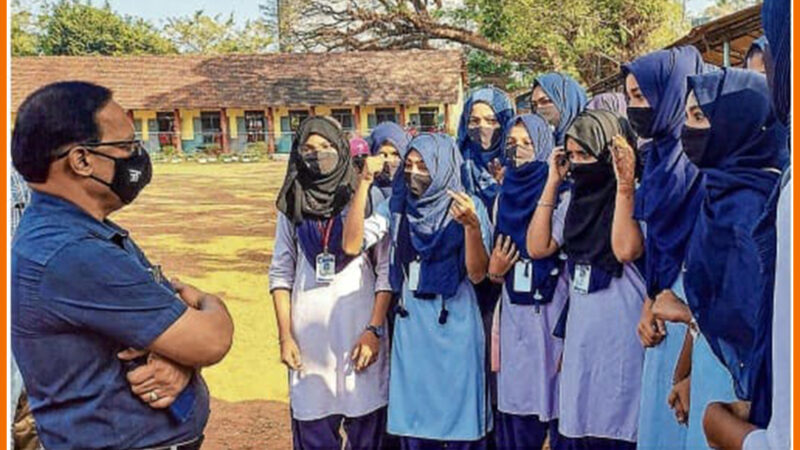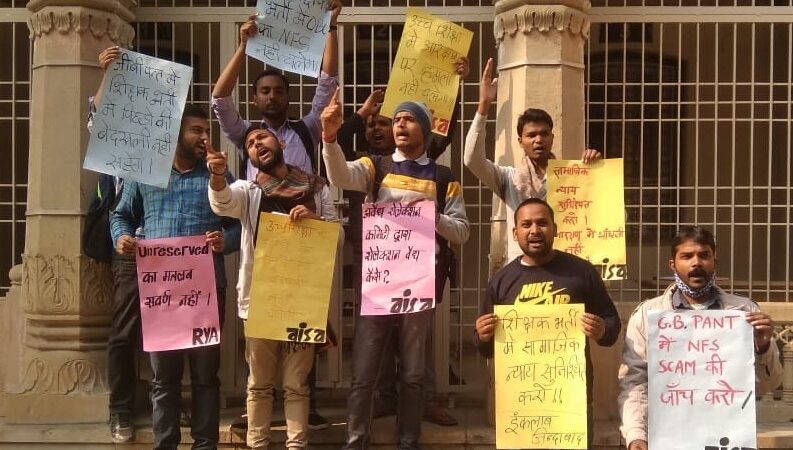Rebuff JNU VC’s Overenthusiastic Attempts to Impose the 5th May 2016 UGC Notification
Forcible Imposition of the 5th May 2016 UGC Notification by the JNU VC
Spells Massive Seat Cut in JNU’s M.Phil./Ph.D. Admission and Scuttling of Social Justice in the Admission Process!
Reconvene 142nd AC Meeting! Reject UGC Notification! Stop Seat Cut! Reduce Viva Weightage!
The Background: The JNU Vice Chancellor convened the 142nd AC meeting during the winter break on 23 Dec 2016, violating all norms and ignoring legitimate objections from teachers and students that AC meetings should not be held during vacations when several members of AC were out of campus. In the earlier AC meeting held in October, the VC promised to convene a special AC meeting within the semester to finalise the decision on the reduction of viva weightage. However, in the AC meeting of 23 Dec, instead of adopting the Viva Committee (Prof. Nafey Committee) Recommendations of reduction of viva weightage from 30 to 15, for which the AC was primarily meant, the VC suddenly forced the ‘adoption’ of a UGC notification of 5 May 2016!
With this single stroke, the VC not only nullified the hard work and long awaited recommendations to reduce viva weightage, he also sought to overhaul the entire admission process for M.Phil. /PhD. JNU’s present admission process – marked by the unique deprivation points system and the latest recommendation for viva weightage reduction – can serve as a model for inclusive and socially-just admissions for any university. The VC, through his unilateral imposition of the UGC notification, has dealt a body blow to JNU’s admission process for its entire research programme, by cutting down seats in M. Phil / Ph.D. as well as scuttling social justice in the admission process.
Dangerous Implications of the 5th May 2016 UGC Notification
What will the ‘adoption’ of the UGC notification mean for JNU’s M.Phil./Ph.D. admission process, research programme and the socially inclusive character of the university?
¨ Massive Seat Cut in M.Phil./Ph.D Admissions:
Most significantly, the UGC notification lays down “strict rules” regarding the eligibility of “research supervision”. It says:
“A Research Supervisor/Co-supervisor who is a Professor, at any given point of time, cannot guide more than three (3)M.Phil. and Eight (8) Ph.D. scholars. An Associate Professor as Research Supervisor can guide up to a maximum of two (2) M.Phil. and six (6) Ph.D. scholars and an Assistant Professor as Research Supervisor can guide up to a maximum of one (1) M.Phil. and four (4) Ph.D. scholars.”
Needless to say, such a cap on the numeber of research supervision will lead to a drastic reduction in the available number of MPhil and PhD seats in JNU, with many centres unable to provide a single seat over next few years. It is alarming that the Director of Admissions has sent off a circular on 11 Jan 2017 to different centres with the following order:
“Accordingly the number of students intake for M.Phil./PhD programmes will be recast on the basis of faculty strength of each school/centre/special school as per clause 6.5 of the above said UGC regulation”.
This is a clear farmaan for drastic SEAT CUT in the upcoming M.Phil./Ph.D. admissions jeopardising the admission opportunity of hundreds of students of JNU and elsewhere. This Seat-Cut formula has to be robustly resisted.
JNU administration must be categorically told that UGC-dictated cap of restricting M.Phil./Ph.D. admissions based on existing faculty strength has no logic so far JNU is concerned.
- Firstly, with its existing intake capacity, JNU is rated as a top university in research for decades by all “quality” indices. So what’s the need to impose the UGC-dictated cap on admissions in M.Phil./Phd.D. research programmes?
- Secondly, the JNU faculty is not complaining of ‘overburden’/’excess research scholars’; on the contrary, they have forcefully opposed the UGC notification. So why is the administration so keen for SEAT CUT in M.Phil./Ph.D. admissions?
- Thirdly and more fundamentally, is it correct to restrict admissions/enrolment in higher research based on the existing faculty strength? Or, the govt must plan to expand faculty strength in research programmes depending on the expanding number of new aspirants?
It is evident, that illogical the UGC notification is meant to trigger a downward spiral and steady reduction in the number of research scholars in the coming days and is only reflective of BJP govt.’s dangerous political agenda of somehow strangulating higher education and research in the country. Last year, BJP govt attempted the same by trying to withdraw Non-NET fellowship; this year they have struck back with this UGC notification to curb access to higher education and research.
When it is the need of the time to expand the scope of higher education for the vast majority of the Indian youth and make it accessible to the most marginalised section of the society the UGC notification is being used for reducing the existing inadequate number of seats and scuttling social justice. The UGC circular claims that it is putting ‘guidelines’ in place to ensure ‘quality’. The fact is: in the name of quality, the UGC is punishing students for NO fault of theirs. If there are not enough faculty members WHO is to be held responsible? Aren’t University administrations and the MHRD/UGC ultimately responsible for this? Why should students suffer because the MHRD has an agenda to kill publicly funded, affordable, quality higher education in India? The excuse of ‘quality’ or inadequate faculty cannot be used to reduce the number of students. The solution towards better ‘quality’ would be to increase investment in higher education, finish contractualisation of faculty posts, and guarantee fair appointments. But the MHRD/UGC are least interested in doing any of these.
Apart from the formula of direct SEAT CUTS, the adoption of UGC notification by JNU will kill the potential for social inclusion in higher education in MULTIPLE OTHER WAYS:
- Till 2016, the eligibility criteria for applying to JNU’s various programmes was decided by individual departments, depending on their requirements as well as past experiences. The minimum qualifying marks demanded by various programmes range from 45-55% (in MA for admission in the M. Phil programme, for instance). Also, relaxation in these eligibility criteria is provided to students from the PH/ SC/ST/OBC categories. As per the UGC circular all candidates to all M. Phil programmes will have to get a minimum of 55% in MA. The uniform 55% benchmark would clearly restrict several students from marginalized backgrounds from even appearing in the entrance test for M. Phil/Ph.D.
- All Universities have the right to decide their admission requirements, based on the specific nature of the programmes they offer. Several court judgements have upheld this right – the MHRD or the UGC cannot decide a single ‘eligibility’/selection criteria which has to be adopted by Universities all over the country. In other words, a “one-shoe-fits-all” philosophy is completely unacceptable, as this will destroy the ability of individual departments and Universities to cater to diverse students as well as research interests.
- In JNU, till now, in order to be called for the viva voce for M.Phil. admissions, students need to obtain a minimum marks (35% for unreserved categories, 31.5% for OBCs and 25% for SC/ST/PH out of 70; http://www.jnu.ac.in/Admission/AdmissionPolicy.pdf) in the written exam. Students from PH/SC/ST/OBC categories get legally mandated relaxation in this minimum eligibility criterion. According to the UGC circular, all students now have to obtain a minimum of 50% marks in the written exam, with no mention of relaxation to students from marginalised backgrounds.
Clearly, this will DRASTICALLY reduce the number of students eligible to even be called for the viva! In other words, JNU will not be able to fill the seats it has in various programmes. Seats reserved for SC/ST/OBC/PH will obviously see the heaviest casualties.
¨ 100% VIVA Based Admission :
The JNU Vice Chancellor is trying his best to go even one step ahead from the UGC in scuttling social justice and inclusive admission policy. The UGC notification states that the M. Phil /PhD admission will be based on a two step entrance process consisting of written and viva. It also states that written test will be a qualifier. In JNU entrance for integrated M. Phil/PhD is already a two step entrance test and a qualifying mark is fixed. Nowhere does the UGC notification mention that the written will be a mere qualifier. The Vice Chancellor’s attempt to replace the Nafey committee recommendations to reduce viva weightage from 30 to 15 by the UGC notification is nothing but a deliberate attempt to escape his responsibilities in reducing viva weightage.
The Vice Chancellor clearly intends to “over read” the UGC notification by making written test a mere qualifier. That would mean viva will carry 100% weightage in making the admission list. It is more than clear that it is the Vice Chancellor’s denial to address the structural discrimination in high viva weightage and not the ‘obligation’ of the UGC notification that has stopped the AC to accept the Nafey committee recommendation.
¨ Undermining Deprivation Points:
The imposition of the UGC notification would act in grossly undermining JNU’s unique deprivation point policy. If the UGC notification is interpreted to mean that the written examination will merely be a qualifier then surely the question comes how deprivation points will be given. In this motivated reading of the UGC circular if deprivation points are given at the level of written test then the points will not be added in preparing the final merit list. If the deprivation points are given after written test then the points will be meaningless in ensuring that students from deprived backgrounds make it to the viva.
In sum, the UGC notification is in reality a “strait-jacket” with rigid examination criteria, admission rules and the criteria for the eligibility of research supervision.
JNU administration, by blanket and forcible imposition of the UGC notification, has severely compromised the university’s autonomy and is working to destroy the unique inclusive features of JNU’s admission process won through struggles by generations of students’ movement in the campus.
The Unexplained Haste
After the so called ‘adoption’ of UGC notification by the AC and EC, the admin was forced by growing opposition to send a circular on 5 January 2017 asking for inputs on the notification by 16 Jan 2017. However, without even waiting for the inputs to arrive, the Director of Admissions sent another farmaan to centres on 11 January 2017, this time virtually ORDERING the centres to IMPLEMENT the UGC Notification and accordingly RECAST (read REDUCE) M.PHIL./PhD. seats for the upcoming admissions and overhaul the admission process. Clearly, this undue haste is to placate the saffron masters whose whole and sole agenda is to commercialise and saffronise higher education in general and target JNU in particular.
Serving the Saffron Agenda: Now SHUT DOWN JNU-Part III?
For past one year, JNU has witnessed unprecedented attacks and crackdowns. Last year, in the month of January, Prof. M Jagadesh Kumar took over as Vice-Chancellor of JNU. Within weeks of his joining, the campus witnessed an unprecedented crisis with Delhi Police being given a free hand to raid the campus, witch-hunt political activists, arrest at will without the VC demanding to even see the evidence or any warrant before allowing such action. The saffron brigade gave the call for “Shut Down JNU” and the new VC was seen dancing to the sanghi tune. This was the phase of Shut Down JNU-1. The VC was welcomed with a befitting resistance by students and teachers which introduced him to the spirit of JNU.
We again witnessed a fresh round of attacks by the JNU admin on students and teachers from the beginning of the last semester: the phase of “Shut Down JNU II”. The JNU administration shamelessly used threatening and intimidating tactics as well as victimizing teachers and delegitimizing JNUTA, who have spoken out against the policies of govt. crackdown on universities. The security guards were instructed to record any political cultural programs, public meetings and academic activities. Flouting every established norm, the JNU administration tried to change the seniority criterion of appointing Chairpersons in the centers. Agreement with the vision of VC instead of the seniority is being established as the criterion to appoint the Chairpersons. In the name of the lack of “vision”, teachers from the deprived sections are being removed from Chairpersons. The highest number of notices ever served in the past year to student activists, including former and current Union office bearers at each instance of protest, including, burning of an effigy of Gaurakshaks and the Gujarat Government, observing May Day among other protests. Najeeb Ahmad, a minority student disappeared from the campus after facing violence from a group of communal lumpens. The VC has shown complete inaction in finding Najeeb. He has given green signal to ABVP lumpens to freely indulge in violence and intimidation by refusing to punish Najeeb’s assaulters even after they have been proven guilty of assaulting and threatening Najeeb in the Proctorial enquiry. Threats and intimidation of student activists and faculty members for protesting at the Administration Block has reached a new height.
JNU admin also understood that, in order to convert JNU campus into an RSS shakha, it is imperative to destroy the structures and policies that make the campus an inclusive and egalitarian space. That is why the most recent round of attacks has been unleashed by the VC, a bid at Shut Down JNU part III. To kill JNU from within, the VC has now imposed the 5th May UGC notification, which will result into massive seat cut, 100% viva weightage and destroy the unique deprivation point of JNU admission policy.
Defend and carry forward the struggles for democratic and socially inclusive campus
The student community in JNU has fought several struggles in JNU to ensure a more inclusive and democratic admission policy. In the early 1990s, the deprivation point system was brought back. More recently, this unique system was expanded. In JNU, we have fought a long battle for ensuring the proper implementation of OBC reservations, and defeated JNU’s illegal “cut-off” criterion for OBC admissions both in the Delhi High Court (7 Sep 2010) and then again in the Supreme Court (18 Aug 2011). We have ensured recognition of Madarsa certificates in JNU.
The BJP-RSS is hell-bent on destroying campuses like JNU, destroying higher education altogether.
- In the 2016-17 Union Budget, a massive 55% fund-cut to the University Grants Commission (UGC) has been announced. At a time when at least 10% of the budget allocation should have been on the crucial education sector, the budget is now a mere 3.7% and is being viciously slashed every year. The effects of these massive fund-cuts are there for all of us to see and experience.
- Just last year, the MHRD dictated UGC’s move to end Non-Net Research Scholarship was resisted and defeated by the massive “Occupy UGC” movement.
- The Draft of the National Education Policy 2016 of the Modi govt clearly shows the government’s plans to kill every possibility of equal standards of education for everyone. In the name of Open school and colleges and vocational/skill training, the government has chalked out a blue print of low standard and curtailed education for students from disadvantaged background. Massive commercialisation is being proposed in the form of Private Public Partnership.
In these dark times, we can’t and must not allow the stooges of the government, the JNU administration, to push through this anti-student, anti-social justice, anti-democratic UGC circular. The collective gains of the student community in the form of deprivation points, reservations and recommendation for reduction in viva weightage cannot be allowed to be washed away. We must ensure that the 142nd AC meeting is reconvened, the unilateral acceptance of the UGC circular is revoked and the 5th May Gazetteer notification is withdrawn by the UGC.
Rebuff JNU VC’s Overenthusiastic Attempts to Impose the 5th May 2016 UGC Notification- the Blueprint for Seat Cut and Social Exclusion!
We Must Fight Back Now, Fight for a Socially Inclusive JNU!!







